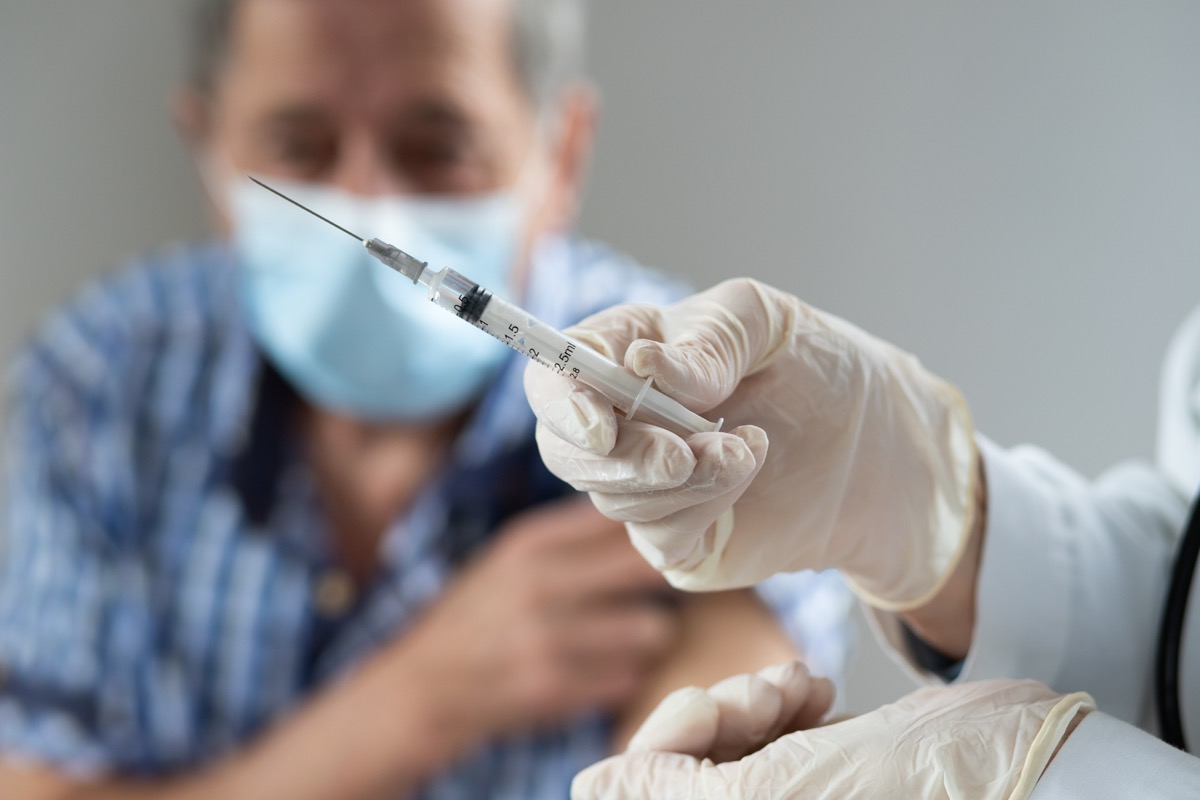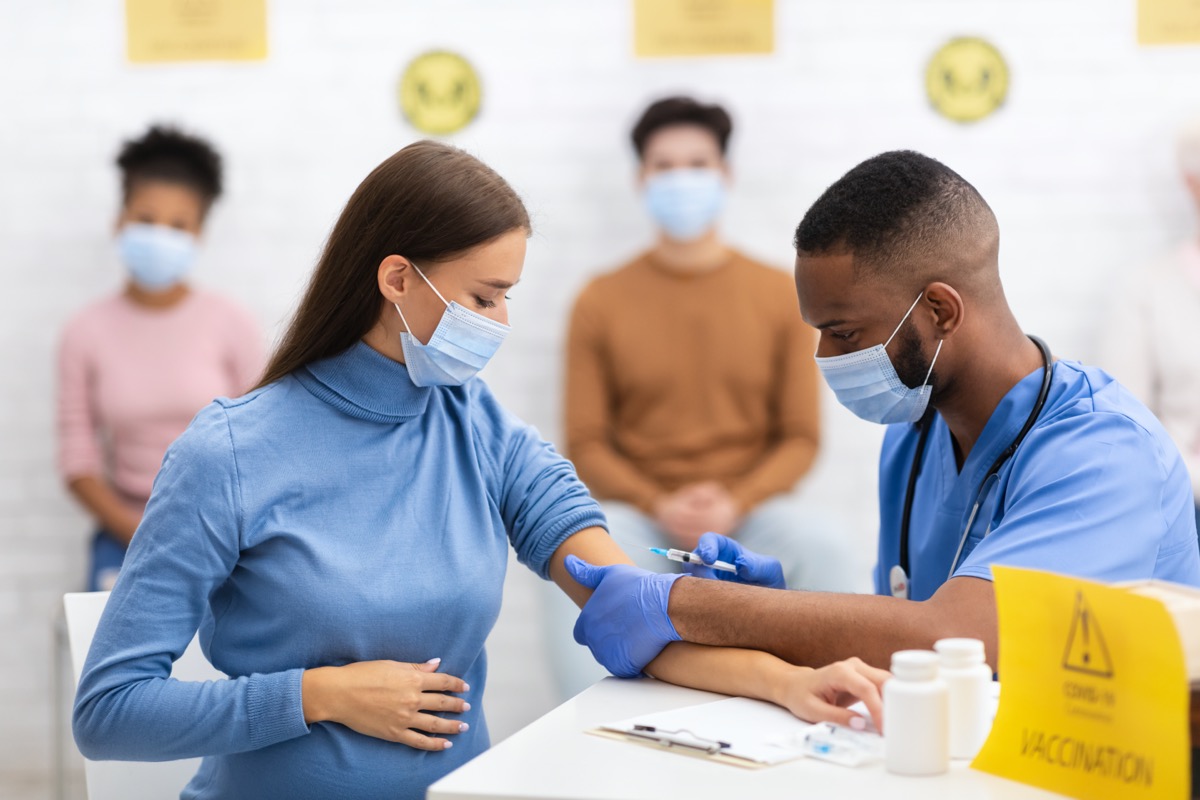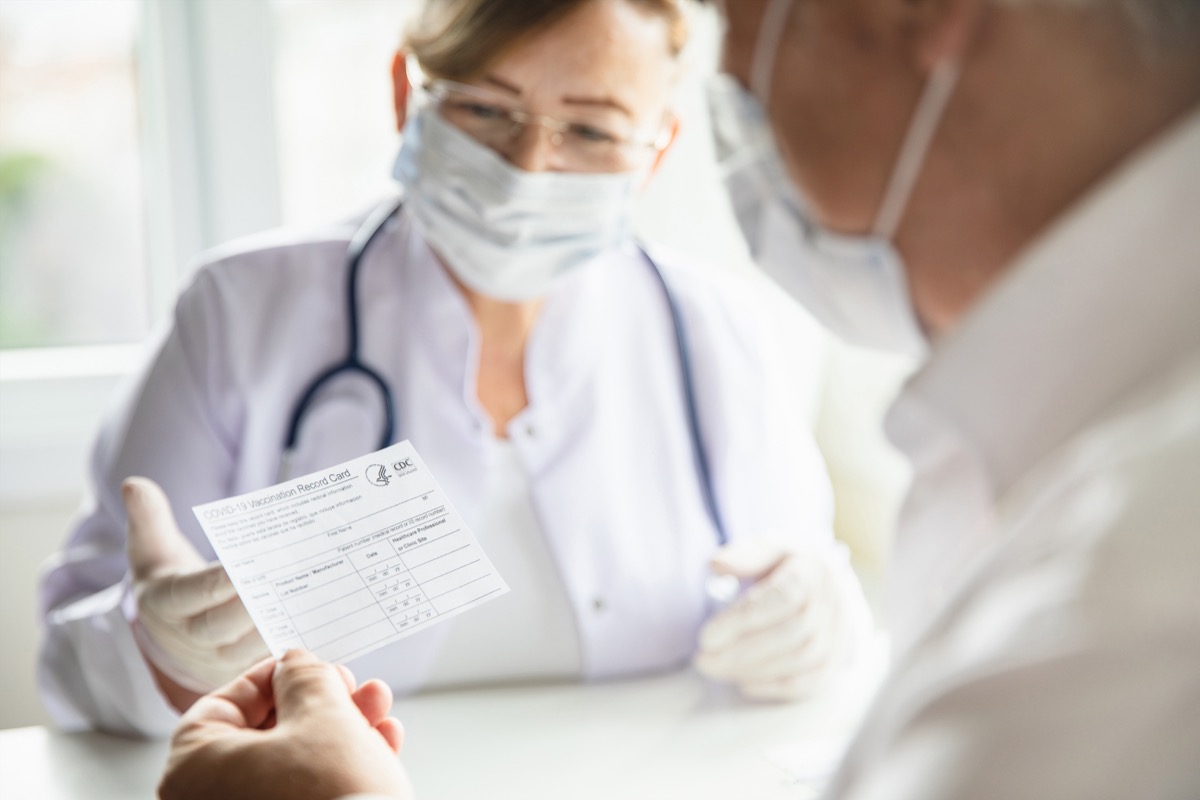While making the rounds on the major Sunday morning news shows on Apr. 18, Fauci was asked when it would become clear that the public would need booster shots of the COVID-19 vaccine. During his interview with CBS’ Face the Nation, he explained that there were two major indicators of when another dose would be required. “If you get a level of immunity, which is measured generally by antibodies—it’s a correlate of immunity—[and] when that level starts to fade down to a certain critical level, then it’s a good indication you’ll need a boost,” he said, describing the body’s immune response to the first doses of shots. “Or if you start to see breakthrough infections, either with the original virus or with a variant. And if it’s with the variant, even though a person’s vaccinated, you might want to boost with a variant-specific boost as opposed to just a boost to the regular.” And for more on breakthrough infections, find out How Likely You Are to Get COVID After Being Vaccinated, CDC Says. The top infectious disease expert was still able to provide a general timeline of when he believes the next round of shots could start. During an appearance on ABC’s This Week, Fauci predicted that the need for COVID boosters could become apparent in a matter of months.ae0fcc31ae342fd3a1346ebb1f342fcb “I believe, by the time we get to the end of the summer and the beginning of the fall, we’ll have a pretty good idea whether we definitely or not need to give people boosts and when we need to give it to them,” he estimated. And for more on what to expect with future immunizations, find out why Moderna CEO Says There Could Be a Big Difference in Your Next Vaccine. Fauci’s estimations on when another shot might be needed come after new studies have shown how long current versions of the vaccine appear to be effective. Research published in The New England Journal of Medicine (NEJM) on April 6 suggests that protection gained from the Moderna vaccine extends for at least six months. Results showed that antibody activity remained high in all age groups six months after the second dose of the company’s mRNA vaccine, which is the longest amount of time studied to date. And after analyzing over 46,000 trial participants, Pfizer announced in a statement on April 1 that its COVID vaccine remains highly effective and safe for at least six months after the second dose, as well. Ugur Sahin, CEO and co-founder of BioNTech, which co-created the Pfizer vaccine, said that the new findings are “an important step to further confirm the strong efficacy and good safety data we have seen so far, especially in a longer-term follow-up.” And for more COVID vaccine news sent right to your inbox, sign up for our daily newsletter. The CEOs of Pfizer and Moderna both recently announced that their companies were working on boosters they believed would be required annually going forward, but Fauci explained that the decision would not be up to these private companies. During an appearance on NBC’s Meet the Press, he said that any choice to begin administering another dose would be made by officials. “It is going to be a public health decision. It’s not going to be a decision that’s going to be made by a pharmaceutical company,” Fauci explained. “We’re partners with them because they’re supplying it. It’ll be an FDA/CDC decision. The CDC will use their Advisory Committee on Immunization Practices the way they always do.” And for more on why you still might get sick even after your shots, check out: Dr. Fauci Says This Is How You Can Catch COVID Even If You’re Vaccinated.



